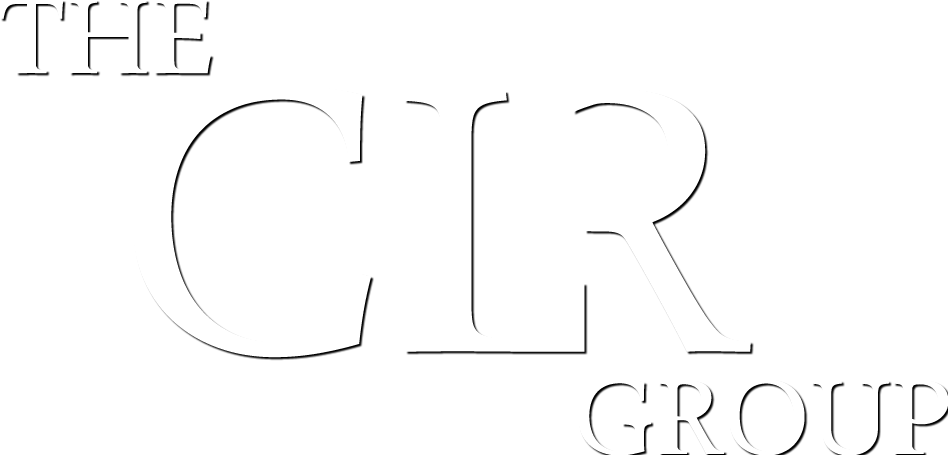
Substance Abuse Counseling & Treatment in Mountain Brook, AL
CLR Counseling Group specializes in the area of assessing and developing a customized plan for individuals who feel they may need help or family members who are in need of solutions for a loved one that may be struggling with alcohol or drug abuse in the Birmingham area, including opiate dependence, heroin abuse, and pain pill abuse.
Substance abuse therapists at the CLR Group in Mountain Brook understand that addictions require a multi-layered approach to drug abuse treatment and alcohol abuse treatment based on the severity of the problem. This multiple layer approach provides a safety net where every layer gives the individual a greater chance at a successful recovery. Treating individuals with substance abuse problems is not a one size fits all approach. Substance abuse therapists in Mountain Brook at the CLR Group serve the greater Birmingham area and understand that different addictions—from alcohol abuse to heroin or pain pill abuse—require different forms of treatment, including cognitive behavioral therapy.
“You have your way. I have my way. As for the right way, the correct way, and the only way, it does not exist.”
If you or someone you know are considering treatment it is very important to have a thorough Substance Abuse and Mental Health Assessment completed by an experienced Substance Abuse Specialist in Mountain Brook and the greater Birmingham area.
Substance Abuse Therapist in Mountain Brook, AL
Chesie Roberts, a Birmingham substance abuse counselor and therapist, has completed over 1000 assessments with over 70% resulting in an opiate diagnosis. She understands that addiction is a serious fatal disease. She also knows the importance of having a Substance Abuse Therapist guide you through the process. An initial assessment by a professional will determine if there is a diagnosis for Substance Abuse or Mental Health and what type of treatment would work best for th individual to overcome substance abuse and addiction. Chesie believes it is crucial that her clients have a thorough understanding of every option available and works with the individual to design a specialized plan that they are excited about. Having a choice in your road to recovery will give you the greatest chance for success.
Levels of Treatment for Substance Abuse
Treatment programs must be individually tailored to fit the needs of each person affected by a substance use disorder. Five main levels of treatment exist to allow patients to begin the treatment process and guide them through recovery.
Every person has different needs when it comes to substance abuse treatment. When patients first enter rehab, it is important they are assigned to the proper level of care.
This approach to treatment, or continuum of care, ensures that patients receive adequate care upon admission and are smoothly transitioned to a higher or lower level of care as needed. According to the American Society of Addiction Medicine, there are five main levels of treatment in the continuum of care for addiction treatment.
The five levels of addiction treatment:
Level 0.5: Early intervention services
Level I: Outpatient services
Level II: Intensive outpatient/partial hospitalization services
Level III: Residential/inpatient services
Level IV: Medically managed intensive inpatient services
The continuum of care was developed to ensure uniformity through the treatment program and to make it easier for patients to transition from one level of care to the next.
-
Early intervention services are a precursor to treatment. They are designed for adults or adolescents who are at risk of developing a substance use disorder but do not display any diagnostic criteria to be admitted to rehab.
During early intervention, treatment focuses on the risk factors that predispose the person to drug addiction and educates the individual about the negative repercussions of drug misuse.
The duration of early intervention services greatly depends on the patient’s understanding of the perils of substance use and whether he or she makes behavioral changes to avoid the path to drug addiction. Patients are closely monitored for symptoms that indicate they need a higher level of treatment.
-
Outpatient treatment requires patients to attend regularly scheduled meetings. This level of treatment allows patients to carry on with their routine while receiving face-to-face services with addiction or mental health professionals. It is ideal for people who have jobs or a strong support system at home, and it typically costs less than other levels of treatment.
Level I care includes evaluation, treatment and recovery follow-up services. It addresses the severity of the individual’s addiction, helps implement behavioral changes and ameliorates mental functioning. Patients may transition to the first level of treatment from a more robust program. Level I is also a stepping stone for people who are not ready or willing to commit to a complete recovery program.
-
The second level of treatment can accommodate medical and psychiatric consultation, psychopharmacological consultation, medication management and 24-hour crisis services. The program is affiliated with other levels of treatment in the continuum of care and provides support services such as child care, vocational training and transportation.
-
This program comprises counseling and education about mental health and substance use issues. Patients are referred to psychiatric and medical services if addiction specialists deem it necessary. However, intensive outpatient programs cannot treat unstable medical and psychological conditions.
-
Unlike intensive outpatient programs, where the patient has to be referred to outside psychiatric and medical professionals, partial hospitalization provides direct access to those services along with laboratory services.
-
Level III of the continuum of care provides residential substance abuse treatment. This level of treatment is typically appropriate for patients who have functional deficits or require a stable living space to help with their recovery.
Treatment and assistance are provided around the clock, and the facility is staffed 24 hours a day, seven days a week. The patients may live on site or in a living facility in close proximity to the drug and alcohol treatment center so nearby services are readily available.
-
At this level, services focus on teaching recovery skills, preventing relapse and improving emotional functions. Professionals also help people relearn essential life skills that will benefit them personally and professionally after treatment.
Level III.1 treatment includes:
Outpatient substance abuse services
A structured recovery environment
24-hour staffing
House meetings
A community that promotes living skills.
This level of treatment requires the facility to be fully staffed and equipped with treatment services.
-
Also called extended or long-term care, this treatment program provides a structured environment and medium-intensity clinical services. It is designed for patients who have been deeply affected by substance abuse, including those showing temporary or permanent cognitive deficits.
Robust treatment is offered at a slower and more repetitive pace to help the patient overcome mental impairments such as Wernicke-Korsakoff syndrome, traumatic brain injury or intellectual disability associated with drug use. This level of treatment provides
Ongoing case management with services including housing, vocational needs, transportation and continued self-help meetings. It aims to assist patients with societal reintegration.
-
This program is designed for individuals who have multiple issues and have had a series of unsuccessful interventions. The issues may include substance use disorders, criminal activity, mental disorders, impaired functioning and difficulty adapting to societal norms. Level III.5 caters to people with chaotic, nonsupportive and abusive relationships.
-
Medically monitored treatment is directed toward individuals with functional deficits such as withdrawal risks, medical issues or emotional issues that prevent the person from progressing in the recovery process.
Facilities offering level III.7 treatment provide 24-hour professional evaluations, observation, medical monitoring and addiction treatment.
-
Out of the four levels of treatment, level IV is the most comprehensive and intensive. It offers 24-hour medically directed evaluation, care and treatment, including daily meetings with a physician. The facilities are usually equipped with the resources of general acute care or psychiatric hospitals and offer substance abuse treatment that also addresses co-occurring disorders.
The last level of treatment focuses on stabilizing patients and preparing them for transfer to a less robust level of care for continued monitoring as they progress toward recovery.
Medication Assisted Treatment in Birmingham, AL
Medication-assisted treatment (MAT) increases the chances of recovery when used alongside evidence-based behavioral therapy. MAT is not a replacement for therapy, but it is an essential aspect of care for several types of drug addiction treatment.
Recovering from addiction isn’t easy, but there are some medications that can help. When combined with evidence-based therapy, certain medications can increase the effectiveness of treatment and decrease the chances of relapse.
Medication-assisted treatment is not a replacement for behavioral therapy.
The U.S. Food and Drug Administration (FDA) has approved several drugs to treat addiction to alcohol, tobacco and opioids. These medications ease withdrawal symptoms and cravings and reduce the chances of an overdose.
Medication-assisted treatment is not a replacement for behavioral therapy. The goal of MAT is to help patients get through detox and actively participate in treatment programs.
Madeleine Ludwig credits medication-assisted treatment with savin her life. She told DrugRehab.com that she wouldn’t have been able to recover from heroin addiction without the help of Suboxone, a medication that eases cravings and withdrawal symptoms caused by opioids.
“The more that you get used to Suboxone, the more you feel like you are able to stabilize on your own,” Ludwig said. “A lot of people say that medically-assisted treatment is not real recovery. I absolutely disagree. I would be dead right now if I didn’t receive medically-assisted treatment.”
Some medications must be distributed through certified treatment centers, and others can be prescribed only by physicians who have received appropriate training and certification.
Addiction Therapist in Mountain Brook, AL
The CLR Group provides cognitive behavioral therapy for substance abuse (drugs, alcohol, etc.) in Mountain Brook, AL. We serve the greater Birmingham area, including Hoover, Homewood, and Vestavia Hills.

